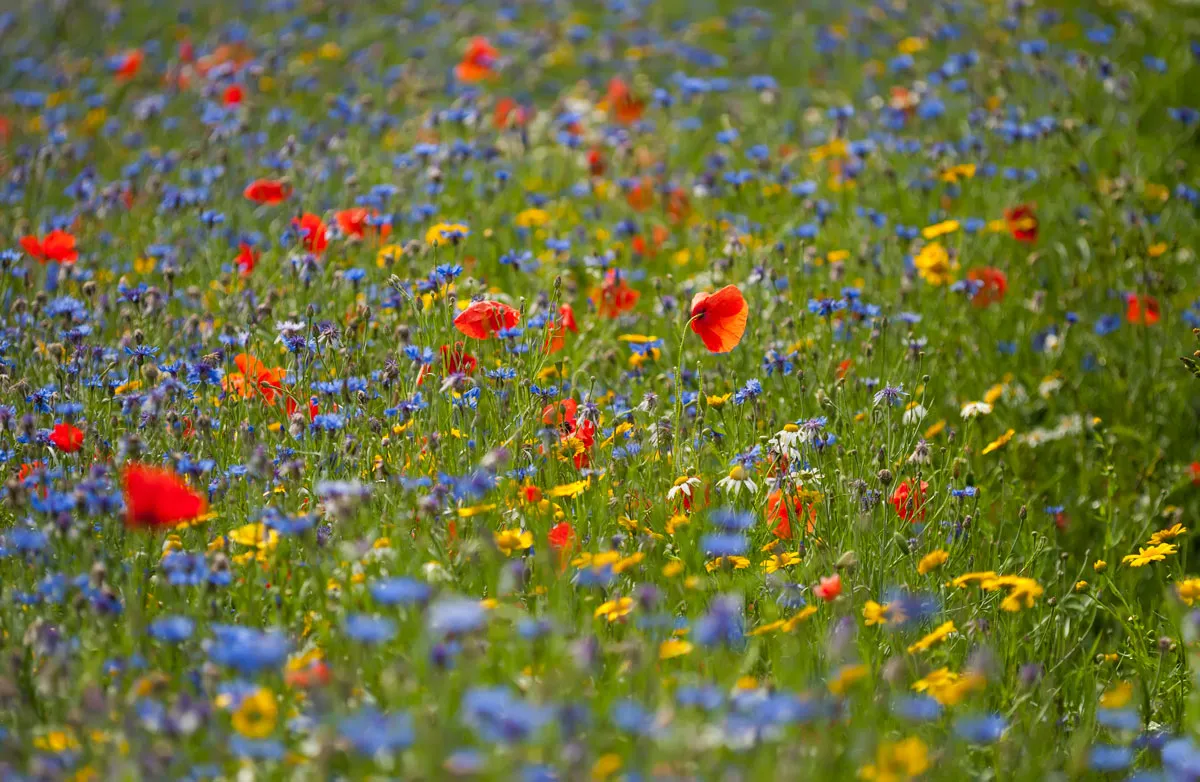Prepare to be surprised at every turn in one of Northern Ireland’s most unforgettable gardens. Walking through the flamboyant Sunken Garden, with its pergola covered walkways, flame-coloured azaleas and soft blue delphiniums, into the intricate topiary of the Shamrock Garden, takes you on a journey from vibrant country gardening into the more robust land of hunting scenes and politics.
With a juxtaposition of hedges in the shapes of the Irish Harp (below) and royal crowns alongside a tulip-filled Red Hand of Ulster (the garden itself is in the shape of a shamrock), this condensed taste of Ireland suggests a little tongue-in-cheek political humour from the lady of the house. It’s an fitting introduction to a garden that’s both playful and political, formal in parts yet wildly exotic in others.
Exotic climes
Mount Stewart, on the shores of Strangford Lough, has been home to the Marquesses of Londonderry since 1816. The most celebrated marchioness was Lady Londonderry, who not only handed over the conservation of her elegant 18th-century house to the National Trust, but also her beloved gardens, which she created and nurtured until the late 1950s.
Both are now thriving in the hands of their adoptive carers, while the saplings, blossoms and bulbs continue to thrive in the Lough’s gentle microclimate. Its unique plants have helped it to be nominated as a potential UNESCO World Heritage site.

Mediterranean wilderness
Lady Londonderry called her gardens a ‘green fairyland’ and this certainly comes across in the wilder Lily Wood, a welcome reprieve from the formal gardens, with its drifts of lilies, poppies and wildflower meadows. Giant myrtle trees and eucalypti offer shade for exotic tree ferns and an array of palms, which almost upstage the more traditional pines and giant redwoods.
The more formal Spanish and Italian Gardens introduce an explosion of sun-filled floral displays along on the south-facing side of the neoclassical house, crowned by two superb potted bay trees, now thought to be some of the oldest in Europe. The Italian Garden’s red, yellow and orange planting schemes are fiery and Mediterranean, illustrating, I like to imagine, the creator’s passionate and almost fury-like zest for life.
Lady Londonderry’s playfulness comes to the fore on the Dodo Terrace, with a series of stone animals on plinths, including dodos, dogs and griffins. These are inspired by the Ark Club, a socialite set that gathered in the Londonderrys’ Park Lane home around the time of the First World War. Each member was allocated the name of an animal, mythical or real. Her husband was famously, or infamously perhaps, known as Charlie the Cheetah.
Wander through woodland
Don’t leave Mount Stewart without exploring the woodland walk, not marked on the excellent garden guide, but you can easily find it by crossing the main drive. For me, this was the epitome of Lady Londonderry’s ‘green fairyland’ and the end to a most delectable day out. But with such a superb array of horticultural offerings on show at Mount Stewart, there is a little bit of magic for everyone.
Useful Information
How to get there
By car, take A20 Newtownards to Portaferry road, Mount Stewart is just 5 miles south-east of Newtownards. You can also take an Ulsterbus Number 10 from Belfast to Portaferry, which stops outside gates of Mount Stewart (translink.co.uk).
Find out more
Mount Stewart House and Gardens
Portaferry Road, Newtownards BT22 2AD
028 4278 8387https://www.nationaltrust.org.uk/mount-stewart
Eat
Bay Restaurant at Mount Stewart
028 4278 7806
On the grounds of Mount Stewart, this restaurant serves seasonal dishes sourced from local produce. Open for homemade cakes and coffees from 10am daily and lunch from midday-2.30pm.
Stay
The Portaferry Hotel
The Strand, Portaferry
BT22 1PE
028 4272 8231
www.portaferryhotel.com
Images:Getty